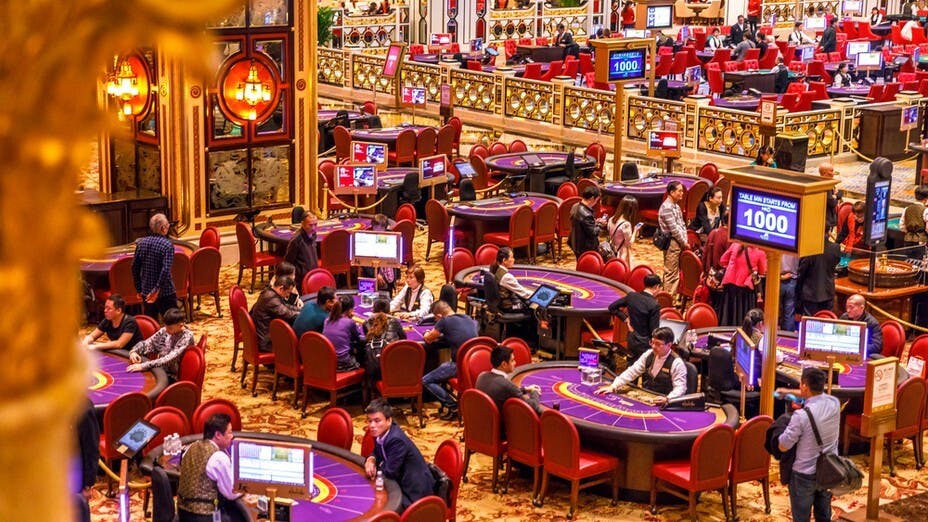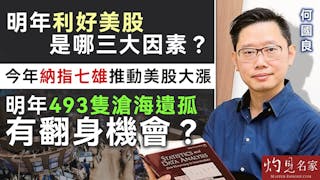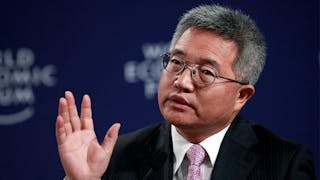澳門最近關閉了一些賭場貴賓室和強調與橫琴的合作,可以分析出一整套影響澳門的管理問題──即對賭場內一些由中介經營的「貴賓廳」進行更優化和更嚴格的管理,從而有效過渡到制定和實施經濟「適度」多元化的政策。在這個艱難的轉型過程中,澳門政府及社會必須處理多方面的問題,從更全面、更深入的政策規劃到對不同經濟部門的廣泛調查,以便獲得足夠的統計數據,以便為制定澳門特別行政區的政策進行更科學的研究。
賭場「貴賓廳」勢力染指內地
首先,在澳門賭場授權經營貴賓廳的博彩中介人(俗稱疊碼仔)產生的問題,已經暴露了澳門賭場內存在授權經營「貴賓廳」這令人困惑的問題。最重要的是,這些賭場內的一些「貴賓廳」已經自行「成長」了,據稱它們的營銷和博彩業務不僅擴展到內地,還擴展到海外,並吸引內地賭客參與賭博活動,唯根據內地的《刑法》會被視為非法。
一些澳門博彩公司似乎缺乏政治敏感度,即是說,賭博在內地一直被視為犯罪,當局自2021年1月以來一直在打擊跨境賭博,包括互聯網賭博。澳門的賭場資本家,包括那些經營貴賓廳和賭場特許經營權的商人,不僅要對大陸的《刑法》,且對澳門賭博業的經濟安全性都必須保持高度敏感。具體而言,在澳門賭錢,有些人往往會涉及危害中央和國家經濟安全的風險,尤其是那些落重注豪賭的內地客,很可能涉及跨境洗錢和挪用公款。
為了堵住賭場內有許多「貴賓廳」的漏洞,澳門政府必須與私營賭場特許經營商合作,審查賭博中介人、賭場特許經營商和政府之間複雜的三角合約關係。澳門公共行政部門或許可以更輕鬆、更有效地管理政府與賭場特許經營商之間的契約關係。然而,正如終審法院對中介人賭廳多金娛樂(Dore Entertainment)一案的裁決所顯示的那樣,賭場特許經營商與營運貴賓廳的博彩中介人之間的合同關係似乎更為複雜。

「疊碼仔」政治敏感度不足?
過去,賭場特許經營商認為貴賓廳對大賭客具有吸引力,藉着利用賭博中介人作為營銷機構,提升賭場的市佔率和利潤。然而,意想不到的是,博彩中介人可能會過度成長,以致他們的「帝國」可能被內地執法部門視為「存在違反內地法律法規」的風險。因此,澳門賭場業界的精英,有迫切需要定期了解內地的法律法規,慎思明辯其推廣賭博的手法,是否超出合理範圍,同時增強對於賭博的政治敏感度──畢竟賭博在內地仍屬非法。
根據《中華人民共和國刑法》303條規定,「以營利為目的,聚眾賭博、開設賭場或者以賭博為業的,處三年以下有期徒刑、拘役或者管制,並處罰金」。最重要的是,2020年12月對法律條文的修訂,可能被澳門的許多賭場資本家、經理人和中介人所忽略。具體內容如下:「以營利為目的,聚眾賭博或以賭博為業者,可處三年以下有期徒刑、拘捕、管制,並處罰金。開設賭場的,處五年以下有期徒刑、拘役或者管制,並處罰金;情節嚴重的,處五年以上十年以下有期徒刑,並處罰金。」
目前還不清楚澳門賭場業界的所有精英是否都清楚內地《刑法》303條的修正案。理想情況下,澳門的賭場特許經營商及其相關博彩中介人,應該深入研究內地政府如何更新、修訂和實施與賭博有關的刑法。
公檢法打擊跨境賭博「抓大放小」
內地公安部在2021年2月5日發布的另一項非常重要的通告,可能會被澳門賭業界所忽略。通告稱,「一些境外賭博集團繼續拉攏誘騙中國公民出境或在網上參與博彩業經營服務,或為其提供資金流……」
公安部聯合各部門打擊跨境賭博,出台六點通告。通告首先針對「賭博罪、開設賭場罪的犯罪嫌疑人,以及關聯犯罪的犯罪嫌疑人」;其次呼籲疑犯投案自首,「可以依法從輕或者減輕處罰;情節較輕的,可以依法免除處罰」;三是先以信函、電話、電報、電子郵件等方式投案,隨後到案的,視為自動投案;經親友規勸、陪同投案的,或者親友主動報案後才投案的,視為自動投案;四是疑犯到案後「有檢舉、揭發他人犯罪行為,經查證屬實的,以及提供重要線索,從而得以偵破其他案件,或者積極協助司法機關抓獲其他犯罪嫌疑人等立功表現的,可以依法從輕或者減輕處罰;有重大立功表現的,可以依法減輕或者免除處罰」;五是呼籲疑犯「要認清形勢,珍惜機會,盡快投案自首,爭取從寬處理。在規定期限內拒不投案自首的,司法機關將依法懲處」;六是鼓勵個人和有關組織舉報在逃疑犯,規勸在逃疑犯投案自首,司法機關將保護舉報人及其他有關證人;對威脅、報復舉報人、控告人,構成犯罪的,依法追究刑事責任。
通告正式公布施行後,內地多個城市跟進,暗示不同城市均可能有公民和官員參與跨境賭博活動。
今年1至9月,內地檢察機關共起訴涉國(境)外犯罪(涉外犯罪、涉港澳犯罪)1.33萬人,其中開設賭場罪1376人,佔比10.32%。當局又指,新型開設賭場犯罪具有較強的「欺騙性和隱蔽性」。可見,內地政府顯然已將跨境賭博視為嚴重的刑事犯罪。

澳門經濟多元化發展機會
然而,賭場內「貴賓廳」的管理危機,可以轉化為澳門發展經濟「適度」多元化的黃金機會。根據2021年9月上旬公布的《橫琴粵澳深度合作區建設總體方案》,確定經濟多元化四大領域──科技創新和高端製造業;中醫藥的發展;拓展文化旅遊、會展、貿易等領域,以及現代金融和貨幣部門的發展、大健康的發展,都需要非常詳細的規劃和制定政策。到目前為止,澳門政府將如何針對這些領域提出具體計劃和制定政策,仍有待觀察。
進行更好的規劃、與持份者更深入地諮詢,以及成立相關工作組或委員會將是迫切和必要的,以幫助澳門設計從傳統對賭場資本主義的依賴,過渡到「經濟適度多元化」的進程。然而,到目前為止,澳門政府似乎更專注於防控新冠疫情及與內地和香港邊境通關的事宜。
綜上所述,如果能將賭場特許經營「貴賓廳」的危機轉化為激發澳門優勢和潛力的大好機會,當地「經濟適度多元化」可能會取得重大突破,從而最大限度地減少傳統上對賭場資本主義的過分依賴,獲得更健康、更均衡的經濟發展。這一潛在的突破,很大程度上取決於對調查數據的急切和系統性收集、社會和經濟持份者的廣泛協商、建立推動經濟多元化四個領域發展所必需的委員會、更好的戰略規劃引進內地人才,最重要的是,以更有組織的方式與澳門的大學就如何培養所需的人才類型進行協調和溝通,使澳門擺脫對賭場資本主義的過度依賴,進入下一階段的經濟騰飛。在澳門,政治意向和願景,以及制定和實施更好的政策勢在必行。
Macau’s Challenges: From Better Management of Casinos within Casinos to “Suitable” Economic Diversification
The recent closure of some VIP rooms and the emphasis on Macau-Hengqin cooperation can be analytically put together as a whole package of governing issues with implications for Macau: namely the effective transition from a much better and tighter management of some “casinos” within casino franchises to the formulation and implementation of “suitable” economic diversification. During this difficult transition, the Macau government and its society must manage a multiplicity of issues, ranging from a more comprehensive and much deeper policy planning to an extensive survey of different economic sectors so that sufficient statistical data will be available for a more “scientific” policy making for the Macau Special Administrative Region (MSAR).
First and foremost, the problems emanating from the gaming promoters, which have possessed VIP rooms under Macau’s casino concessionaries, have already exposed the baffling problem of Macau witnessing “casinos” exist within casino franchises. Most significantly, a few of these “casinos” within casinos have outgrown themselves, allegedly extending their marketing and gaming businesses not only into the mainland but also to the overseas, where mainland gamblers were lured into the gaming activities, which however are seen as illegal in accordance with the mainland’s criminal law. Some Macau-based gaming promoters appeared to lack the political sensitivity that gambling is constantly regarded as a crime in mainland China, where its ruling authorities have since January 2021 cracked down on cross-border gambling, including Internet gambling. Macau’s casino capitalists, including those operating VIP rooms and casino concessionaries, must be highly sensitive to not only the mainland’s criminal law but also the economic securitization of Macau’s gambling sector. Specifically, gambling in the MSAR often entails the risk of endangering the economic national security of the central government, especially if gamblers are from the mainland and if they may engage in massive gambling with the implications of cross-border money laundering and siphoning off the mainland’s financial coffers.
To plug the loophole of having many “casinos” within casinos, the Macau government must work with the private-sector casino concessionaries to review the complex triangular contractual relationships between the gaming promoters, casino concessionaries and the government. The contractual relations between the government and the casino concessionaries can perhaps be managed more easily and effectively by the Macau public administration itself. However, the contractual relationships between casino concessionaries and gaming promoters coping with the VIP rooms appear to be more complex, as the Court of Final Appeal’s decision on the Dore Entertainment case showed.
In the past, casino concessionaries saw VIP rooms as being attractive to big rollers, utilizing the gaming promoters as marketing agencies to boost their market and profits. However, the unintended consequences were that gaming promoters could overgrow in such a proportion that their “empire” could be regarded by the mainland law-enforcement authorities as running the risk of violating the mainland law and regulations. As such, it is urgent for the elites of the Macau casino sector to understand the content of the mainland law and regulations regularly, to critically reflect on whether its gaming promotion might grow out of its proportion, and to reinforce the political sensitivity that gambling remains a crime in the mainland.
Article 303 of China’s Criminal Law says: “Whoever, for the purpose of reaping profits, assembles a crowd to engage in gambling, opens a gambling house, or makes an occupation of gambling is to be sentenced to not more than three years of fixed-term imprisonment, criminal detention, or control, in addition to fine.” Above all, an amendment made in December 2020 of Article might have been ignored by many casino capitalists, managers, and promoters in Macau. Specifically, the amendment is as follows: “Using profits as the motive, those who gather people to gamble or rely on gambling as their profession can be imprisoned for 3 years or below, arrested, controlled or fined. Those who open gambling houses can be imprisoned for 5 years or less, arrested, controlled, or fined. For serious cases, those who are involved can be imprisoned for five years above or ten years below, in addition to the fine.”
It was unclear whether the amendment to the mainland Chinese Criminal Law was made known to all the elites in the Macau casino sector. Ideally, Macau’s casino concessionaries and their related gaming promoters should conduct intensive research on how the mainland government has been updating, amending, and implementing its criminal law relating to gambling.
Another very important notice issued by the mainland’s Ministry of Public Security (MPS) on February 5, 2021, might be neglected by the Macau casino sector. The notice said that some “syndicates outside the territory [of China] attracted gambling and absorbed money for a long period of time (公安部新闻发布会通报两高一部印发敦促跨境赌博犯罪嫌疑人投案自首的通告等情况(nia.gov.cn), February 6, 2021).”
The MPS cooperated with various departments to combat cross-border gambling, coming up with a six-point notice. The notice firstly “targets those suspected criminals opening casinos and those who are involved;” secondly “appeals to these people to surrender themselves voluntarily” with the possibility of reducing their sentences; thirdly “designates the methods of surrendering themselves” through letters, phone calls, telegrams and emails; fourthly “reduces the sentences of those who surrender themselves and who make contributions to the situation and policy by exposing others’ illegal acts and providing important clues for the crackdown of cases;” fifthly “empowers the judicial branch to penalizes severely those who do not surrender themselves within a specified period;” and sixthly “encourages individuals and organizations involved to report on those who are at large or who intimidate or retaliate against those becoming whistleblowers (Ibid).” Once this notice was officially published, many mainland cities publicized it, implying that different cities perhaps had citizens and officials who might be involved in cross-border gambling activities.
On November 29, the Supreme People’s Procuratorate made an important revelation that, from January to September 2021, the procuratorate agencies in the mainland prosecuted 13,300 people, including those who were involved in criminal cases in Hong Kong and Macau, and embracing 1,376 people who opened gambling houses. Moreover, the “new” style of opening casino gambling was “deceptive and hidden (最高人民檢察院:新型開設賭場犯罪集團化特徵明顯危害嚴重(yahoo.com), November 29, 2021).” Clearly, the mainland government has seen cross-border gambling as a serious criminal offence.
Yet, the crisis of governing “casinos” within casinos can be turned into a golden opportunity for Macau to develop “suitable” economic diversification. According to the plan of cooperation between Macau and Hengqin published in early September 2021, the designation of four areas of economic diversification – technological innovation and high-ended manufacturing sector; the development of Chinese medicine; the expansion of cultural tourism, convention, exhibition and trade sectors; the development of modern financial and monetary sector; and the development of big health – will require very detailed planning and policy formulation. So far, it remains to be seen how the Macau government will come up with concrete plans and policy formulation on each of these areas.
The call for economic diversification in Macau began in July 2008, when the former Chinese Vice President Xi Jinping visited the MSAR; nevertheless, little was done until September 2021 when the central government published the Macau-Hengqin cooperation plan in a top-down manner. Progressively speaking, the Macau government should establish several committees to co-opt the industrial, economic and societal elites in different occupation sectors to figure out (1) the manpower needed to boost the four areas of development; (2) the number of local and mainland talents who may be needed; and (3) the timetable for the MSAR to implement “a suitable degree of economic diversification.” Otherwise, if Macau’s gambling sector is encountering the prospects of a shrinking market partly due to Covid-19 and partly due to the complexities in managing “casinos” within casinos, the current crisis cannot be seized as an opportunity to redevelop, re-energize and re-invigorate Macau’s economy.
Statistically speaking, the recent document on Macau’s talent development has lacked concrete statistical figures in many areas: (1) the number and proportion of mainland graduates from Macau’s local universities who are staying and working in Macau’s varying economic sectors; (2) the number and types of graduates from Macau’s universities who will be required to fill in the four key areas of economic diversification in the coming five to ten years; (3) market analyses and manpower projections of the appropriate number of talents needed for the development of the four areas of economic diversification; and (4) the key private-sector organizations, including from Macau and the mainland, that will play a key role in the advancement in each of the four sectors.
Much better planning, more intensive consultation with the stakeholders, and the establishment of task forces or committees concerned will be urgent and necessary to help Macau engineer a transition from its traditional dependence on casino capitalism to the process of “suitable economic diversification.” Statistical date must be collected through proper sources, including census, surveys, annual reports of local universities, and targeted surveys of different occupational sectors through the assistance of economic interest groups. However, so far it seems that the Macau government is preoccupied with the issue of managing Covid-19 and its border opening with the mainland and later Hong Kong.
In conclusion, if the crisis of managing “casinos” within casino concessionaries can be turned into a golden opportunity of galvanizing the strengths and potentials of Macau, its “suitable economic diversification” will likely achieve a significant breakthrough, thereby minimizing its traditional overdependence on casino capitalism and developing a more healthy and balanced economic development. This potential breakthrough depends much on the urgent and systematic collection of survey data, the extensive consultation of various stakeholders in the society and economy, the establishment of committees necessary to propel the development of the four areas of economic diversification, a much better strategic planning on the import of mainland talents, and above all, a more organized way of coordinating and communicating with local universities on how to train the types of local talents required to bring Macau to the next phase of economic take-off away from its overdependence on casino capitalism. Political will and vision as well as much better policy formulation and implementation are imperative in Macau.
原刊於澳門新聞通訊社(MNA)網站,本社獲作者授權轉載。







































